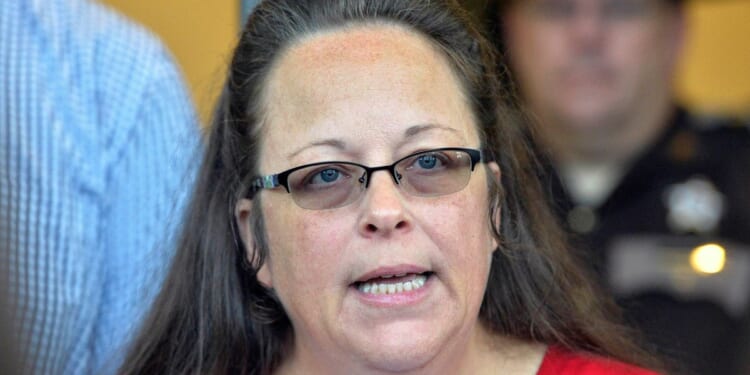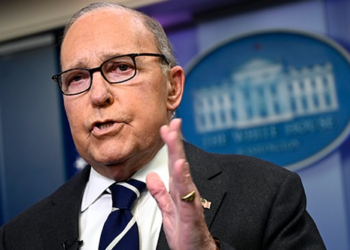
The Supreme Court announced Monday it will not consider a request to overturn its 2015 landmark decision legalizing same-sex marriage.
The court rejected without comment a request from Kim Davis, a former county clerk from Kentucky who refused to sign off on same-sex marriage licenses more than a decade ago.
Ms. Davis petitioned the high court over the summer to analyze the “legal fiction of substantive due process” in a move to strike down Obergefell v. Hodges, the 2015 case in which the justices determined that homosexuals have a right to marry.
The doctrine of substantive due process has been under attack by conservatives, who say it allows courts to create certain rights not explicitly in the Constitution.
The doctrine was used for decades to support Roe v. Wade, the 1973 case that gave women a national right to abortion. The justices overturned that landmark decision in 2022, returning jurisdiction over abortion to the states.
Liberty Counsel, the evangelical ministry representing Ms. Davis, had pointed to the abortion precedent in supporting her request to overturn same-sex marriage.
After the high court upheld the right for homosexuals to marry in 2015, Ms. Davis, as clerk for Rowan County, Kentucky, refused to issue marriage licenses to same-sex couples so as not to violate her Christian faith and state law, which at the time still recognized marriage as a union between a man and a woman.
She spent six days in jail for refusing to issue marriage licenses to same-sex couples.
The state later codified the right of clerks to have a religious exemption from issuing licenses.
But a couple sued Ms. Davis because her name was not on their marriage license.
The jury returned a verdict for $100,000 to the couple for emotional distress and fined Ms. Davis an additional $260,000 in attorney fees.
In her petition to the high court, Ms. Davis claimed she had immunity from the lawsuit and the judgment against her.
The case was Kim Davis v. David Ermold and David Moore.
It would have taken four justices to vote in favor of hearing the dispute for oral arguments to have been granted.










